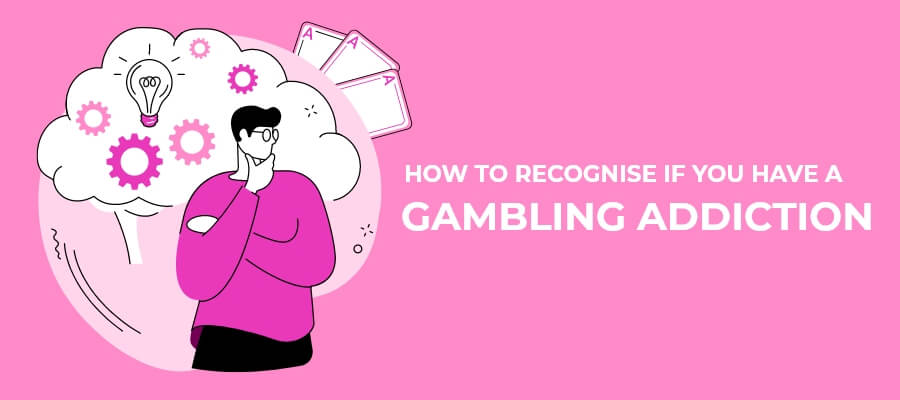
Problem gambling is a serious issue. It can cause financial problems and create a rift between the gambler and his loved ones.
At CasinoFreak, we want to help players gamble safely and responsibly. Therefore, we offer them all the information they need to stay away from the great dangers of addiction.
We want to remind you that there are some excellent ways to keep yourself in control or even stop gambling if an addiction arises. To that end, we have created this dedicated guide on responsible gambling.
REMEMBER
Gambling is supposed to be fun. Yet, some gamblers may find that they cannot control their gambling habits. So, when gambling goes beyond fun, it can create serious problems in your life.
We are here to offer resources to help anyone who is in this situation or knows someone who is addicted to gambling.
Our goal is to provide our users with a safe and responsible gambling environment. This is not only about the casinos and games we recommend, but also about our values as a gambling resource.
Gambling Addiction Types You Should Know
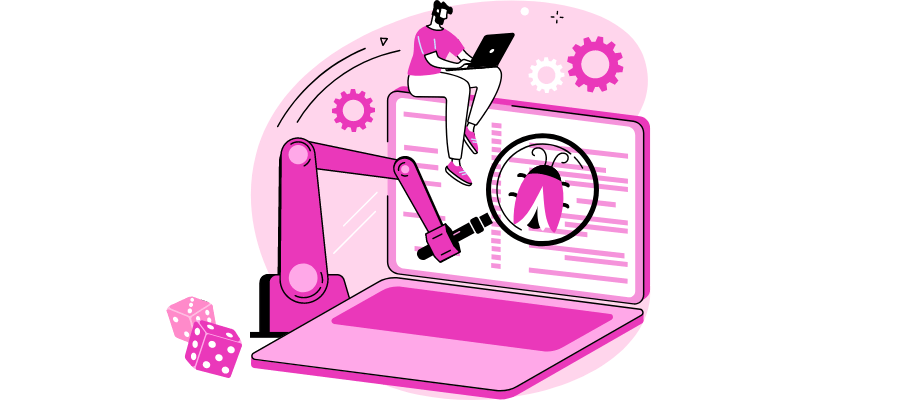
There is not just one addiction type. There are different ways in which this addiction is expressed. In the following section, we are going to discuss these types in detail.
But, before we do that, you must first know what you are dealing with.
Important: Please understand that gambling addiction is not exclusively related to casinos. It also comes in forms such as online bets. Gambling is a form of entertainment, and it should remain like this even if you are a regular gambler.
Yet, there are situations when gamblers simply cannot stop playing. They forget about their lives and their usual activities and spend all their free time gambling.
Please note: Addiction is a progressive issue. If overlooked, it can cause serious problems to the gambler’s personal and social life.
Check out below the different gambling addiction types, as reported by The Recovery Village:
- Compulsive Gamblers – Compulsive gamblers will continue to play whether they win or lose. They simply don’t care about the consequences. This is what psychologists call pathological gambling.
- Professional Gamblers – Well, when it comes to professional gamblers, they are a rarity. These gamblers make a living by gambling. Being a professional gambler requires a high level of patience, intelligence, self-control, and frustration tolerance.
- Casual Social Gamblers – These gamblers are much more common than professional players. They may stop in an online casino from time to time. For them, the act of gambling is not about the strong desire to win. These gamblers are interested in spending quality time with their friends and engaging in some relaxation.
- Serious Social Gamblers – Serious Social Gamblers rely solely on gambling to cope. They may find it hard to cope with stress because of the long hours spent gambling. Also, they may struggle to maintain family obligations and friendships.
- Relief and Escape – These gamblers may seek out gambling just to manage their anxiety or depression. Due to their poor emotional state, they cannot make good decisions. Therefore, they are pretty unsuccessful at winning.
- Antisocial Gamblers – Antisocial gamblers are also called personality gamblers. They are different from other types because they behave in illegal ways. Their main goal is to earn lots of money, by any means necessary.
Self-assessment – Recognize Pathological Gambling Behaviour
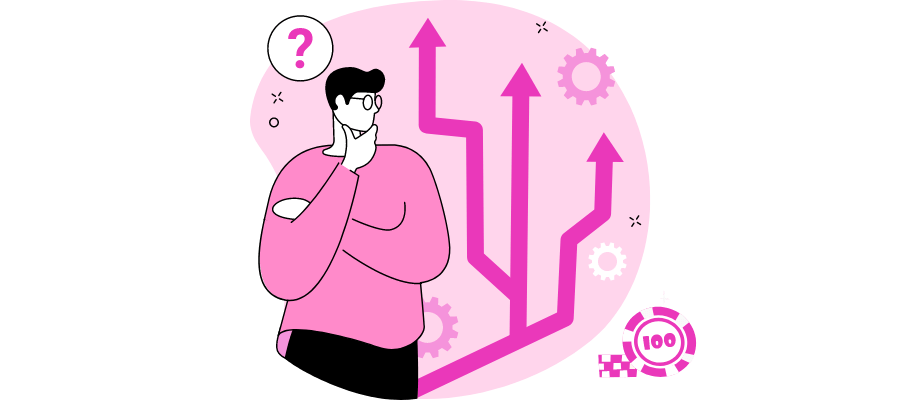
According to psychologists, gambling addiction has been recognized as a psychiatric disorder. Here are some signs that show you are dealing with a gambling addiction.
- Preoccupation – The gambler is thinking about gambling frequently.
- Tolerance – The gambler obsessively wants to experience the same ’’rush’’. Therefore, he requires larger and even more frequent wagers.
- Withdrawal – A high level of irritability associated with attempts to reduce gambling.
- Escape – The gambler plays regularly just to improve his mood and forget about his problems.
- Chasing – The gambler wants to win back gambling losses, which is why he gambles even more.
- Lying – Family and friends do not know about the gambler’s addiction because he never talks about it.
- Loss of Control – The gambler has not succeeded in reducing or quitting gambling.
- Illegal acts – The gambler has broken the law or attempted it to obtain money and recover gambling losses.
- Risking the Status of Significant Relationships – The gambler continues to play regularly, despite risking or even losing their social life and job.
- Bailout – As a result of gambling, the gambler tries to get financial assistance from his family or friends.
- Biological Bases – The gambler is dealing with a lack of norepinephrine.
In case you show at least 5 of these signs, you might have a gambling disorder. Therefore, you need to get in touch with a professional for a proper diagnosis and talk to your loved ones.
IMPORTANT
The support of your family and professional aid will help you overcome any gambling-related problem.
Risk Factors You Need to Consider
Gambling can lead to lots of serious problems if you don’t have good self-control. Yet, addiction can happen to anyone.
The gambler may not even realize he has a problem for some time. Many gamblers are even considered responsible and dependable individuals. However, there are a few factors that can lead to a change in behavior.
These may include:
- Loneliness
- Retirement
- Traumatic Circumstances
- Job-related stress
- Other addictions
- Anxiety or depression
- Environmental factors
Some gamblers may also deal with this problem because they already have an alcohol or drug addiction. Those who already have an addiction may be more at risk of developing a gambling addiction as well.
Genetic and neurological factors also play a very important role. Still, there are also a few factors that can increase this risk.
These are:
- Gender
- The use of medications such as dopamine agonists
- Anxiety and depression
- Personality disorders
- Other addictions that some gamblers may already have
Negative Effects of Gambling
Some of the negative effects of this problem are quite apparent, whereas others may be less obvious.
Finances
When you don’t have self-control and you are constantly gambling, you may get into severe financial trouble. Compulsive gamblers can deal with large debts and such a situation can even result in poverty. Moreover, serious financial problems can lead to legal issues.
Mental Health
Gambling addiction can also cause serious mental problems. Such a situation can even jeopardize an individual’s career and personal life. In the worst-case scenario, compulsive gambling can even lead to depression or suicide.
Relationships
Individuals who deal with this problem do not have a normal relationship with their friends and families anymore. They are always stressed and they cannot think about anything else but gambling.
For more useful information, you can check out the study Families Living with Problem Gambling: Impacts, Coping Strategies, and Help-Seeking.
Steps You Need to Follow for Treating Your Gambling Disorder
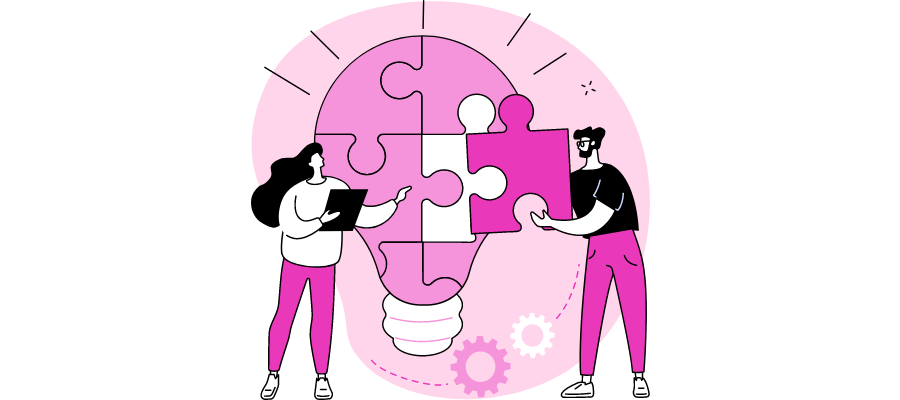
Health experts say that treating this problem is not impossible. Yet, you must follow some important steps and be as honest as possible with yourself.
- Admit You Have a Problem – This is the first and most important step of all. Experts say that treatment will not give positive results if the individual is not honest with himself. Admitting you have a gambling addiction means you are ready to make an effort to stop.
- Get Support – Since this problem is a quite serious one, you need help to recover. Family and friends can be great sources of support. Furthermore, you can also receive help from Gamblers Anonymous.
- Avoid Temptation – Another important thing you need to do is to avoid any environment that leads to gambling. Stay away as much as possible from casinos or anything else that might tempt you.
- Replace Gambling with Something Positive – Finding a hobby or a positive activity is definitely an amazing idea.
- Seek Professional Help – This is another important step that you must follow. Since it is hard to get rid of gambling addiction on your own, you must seek professional help.
Is Your Loved One a Compulsive Gambler?
There are a few ways in which you can be affected if your partner has a gambling addiction, as stated by problemgambling.sa.gov.au:
- You are struggling financially
- Most of the family money, if not all, is spent on gambling
- You are sad and stressed after finding out that your partner has spent all the money on his addiction (savings account emptied, mortgage extended, and so on).
- You deal with legal problems due to joint debts
- You are seriously concerned that your partner may go to jail
- The relationship is breaking-down
- Intimacy between you and your partner no longer exists
- Sadness and anxiety are affecting your life
- You experience sadness, tension, and even some health problems
- You feel depressed
- You no longer have self-esteem and you are blaming yourself
- Nobody knows about your problems because you are hiding them
- You feel ashamed
- You no longer afford to socialize
One question remains: Is there anything you can do in such a delicate situation?
Yes! There are several things that specialists recommend:
Stop Blaming Yourself
You must remind yourself all the time that you do not have any contribution to your partner’s addiction. Moreover, there are plenty of individuals who deal with this problem. If the whole situation is very stressful and it affects you a lot, then distance yourself from your partner. Take care of your mental and emotional health.
Get Help and Support
It is hard to cope alone with a partner who is addicted to gambling. Therefore, you should talk about the situation you are dealing with. Talk about it with a close friend or with a family member. Also, consider talking to a trained counselor over the phone. Call the Gambling Help Line Number if necessary.
Have an Escape Plan if You are at Risk of Harm
To be safe, make sure you know exactly where to go in case things go out of control. You can contact your local Domestic Violence agencies.
Stigma in Gambling Addiction
Psychologists define stigma as an attribute that is deeply discrediting. It has the power to transform a usual person into a discounted individual.
Stigma can be a mark, stain, or blemish. It can be related to characteristics that include a physical attribute, a group identity, or personal traits.
Minimal research has deeply investigated the stigma in gambling addiction. The study explored perceived stigma as well as self-stigma.
The aspects that were analyzed during this study
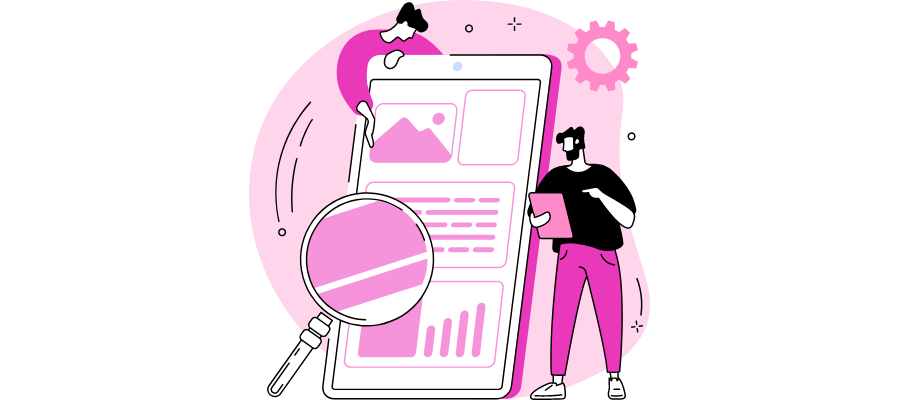
- Stigmatizing beliefs and how they are internalized
- Coping with mechanisms
- Effects on help-seeking
The experts analyzed interviews of 44 people with gambling addiction. For accurate results, experts have used interpretive phenomenology.
Age and Gender of Participants
| Age | Male | Female |
|---|---|---|
| 18-24 | 6 | 0 |
| 25-34 | 9 | 4 |
| 35-44 | 7 | 0 |
| 45-54 | 3 | 5 |
| 55-64 | 3 | 4 |
| 65 or over | 0 | 3 |
| Total | 28 | 16 |
23 participants described their ethnicity as Australian. Yet, with backgrounds including Asian, English, Greek, and Serbian.
Perceived public stigma: stigmatizing beliefs held by participants
- Perceived origin of gambling addiction and other dimensions
- Labelling and stereotypes
- Separating through social distancing
- Emotional reactions
- Devaluation and discrimination
- Coping with stigma
- Secrecy
- Delaying disclosure
- Reluctant to self-acknowledged their problem
- Diminished self-efficacy
- Courtesy stigma
- Relapse appeared to worsen self-stigma
- Cognitive distancing
Self-stigma: internalization of stigmatizing beliefs by participants
- Lowered self-esteem
- Physical health problems
- Eroded self-efficacy
- Shame
Influence of stigma on seeking formal help for problem gambling
- Self-exclusion
- Peer support groups
- Formal counseling
- Online and telephone support
PLEASE NOTE
Results of this study revealed a perception that gambling addiction attracts public stigma. This problem is viewed as a cause of personal failings.
The bottom line
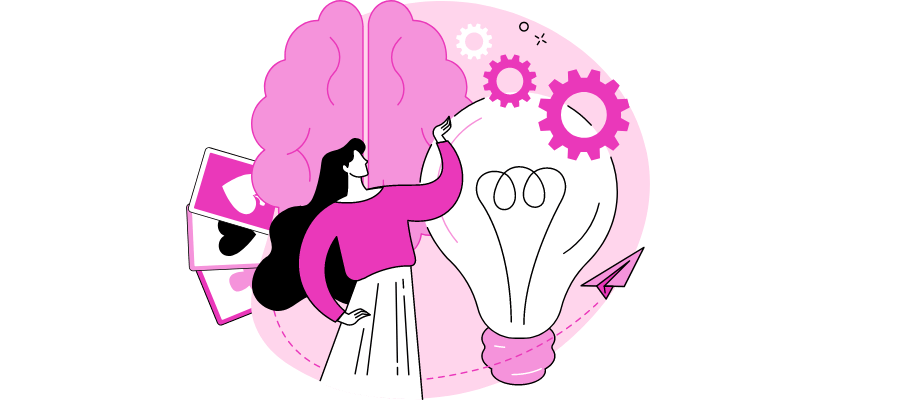
We hope that our guide on how to recognize if you’re addicted to gambling will help you keep it under control.
While it can be difficult to stay away from the casinos at times, there are countless free resources available online that can get you on the right track and keep you away from harmful behavior.
Enjoy gambling as an entertainment form and always play responsibly!




